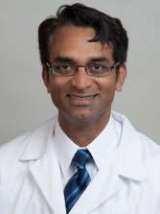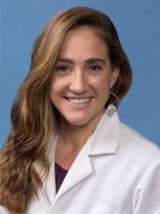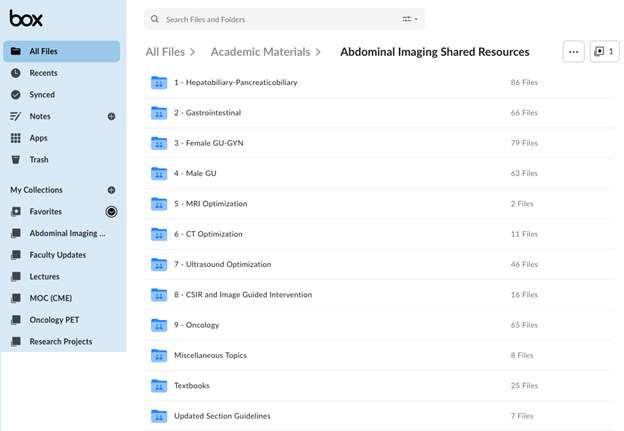Abdominal Imaging Fellowship

Steven S. Raman, MD, FSAR, FSIR
Program Director
(310) 267-9787
[email protected]

Jena N. Depetris, MD
Program Director
(310) 267-8735
[email protected]
There are up to ten abdominal imaging fellowship positions at the University of California, Los Angeles for the 2025-2026 fellowship academic year.
The UCLA Abdominal Imaging Fellowship adheres to the SCARD Fellowship Embargo Guidelines, with relevant application dates as follows:
- November 1, 2025: First day to accept fellowship applications
- January 12, 2026: First day of fellowship interviews
- January 26, 2026 (Noon EST): First day fellowship offers can be made
- First round grace period: Applicants have until January 28th (Noon EST) to accept or decline offers made on January 26th
- Any offer made after January 28th, will have a 1 day grace period for acceptance until all spots are filled (noon EST)
- March 31, 2026: Last day of fellowship interviews
All interviews will be held virtually with no in-person interviews. Internal candidates, military candidates, and an applicant whose spouse/domestic partner is also applying for any medical fellowship in the same year are exempt from this timeline.

The Program
The UCLA Abdominal Imaging Fellowship provides trainees with a uniquely advanced, comprehensive, and clinically rigorous training. The abdominal imaging section is comprised of nineteen fellowship trained, subspecialized expert faculty who perform both image interpretation and image-guided interventions.
Our program provides well-rounded and varied experience that can serve as a solid foundation for both academic and private practice careers. Fellows are expected to read 6000-7000 diagnostic cases and may perform up to 100-200 CSIR cases in both outpatient and tertiary care settings during the year and graduate with a unique and adaptable skill set for academic super-specialization or to augment general practice. Fellows are supervised but also have opportunities for independent image interpretation and moonlighting.
Within the UCLA Health system, there are over 40 MR scanners, 25 CT scanners (including two Photon-Counting CTs), 6 PET scanners, 1 PET MRI, and 60+ US systems. Our health system utilizes Visage PACS for image review and interpretation.
Upon graduation, fellows will become lifelong members of the nearly 200 UCLA Abdominal Imaging/CSIR Fellowship Alumni practicing in Southern California and around the nation and world who are leaders at their institutions.
Clinical Rotations
The fellowship rotation schedule includes training across numerous facilities within the greater Los Angeles area, including three main hospitals (Ronald Reagan University Medical Center, Santa Monica Hospital, and Martin Luther King Hospital) and an expanding network of outpatient imaging centers in Westwood, Santa Monica, San Fernando Valley (Encino, North Hollywood, Calabasas), Santa Clarita, Thousand Oaks, Westlake Village, and South Bay (Manhattan Beach, and Palos Verdes).
Fellows will learn the latest advances and cutting-edge techniques in all modalities within Abdominal Imaging as well as Cross-Sectional Intervention, with an emphasis on dual-energy CT, advanced MRI, PET/MRI, PET/CT and ultrasound- and CT-guided procedural skills. UCLA utilizes state of the art equipment and fellows will be familiar with interpreting and protocoling high-field strength MRI and dual-energy CT.
Fellow rotations are broken down into 1-week blocks with a focus on advanced imaging. Rotation schedules will aim to provide a comprehensive training in abdominal imaging and can be tailored depending on individual areas of interest. Abdominal Fellowship Rotations include:
- Inpatient GI (GI CT)
- Outpatient GI (MRI)
- GU/Advanced MRI (GU2)
- Cross-sectional IR (CSIR)
- Late Shift (2-10pm)
- Oncology/PET
- Ultrasound
- Santa Monica Abdomen (SMH)
Abdominal Core Rotations:
Inpatient GI CT (GI/CT) – fellows will encounter a broad mix of pathologies spanning emergency, inpatient, and outpatient abdominal CT. Fellows will also triage and supervise inpatient fluoroscopy examinations.
Outpatient GI (MRI) – Fellows will be responsible for the interpretation of a high volume and wide variety of advanced multiparametric MRI examinations including Abdominal MRI (liver, pancreas, kidney, enterography, postablation), Pelvic MRI (pelvic floor/defecography, female pelvis, endometriosis protocol, rectal and cervical cancer staging, penile MR), MR Angiography/Venography, and Fetal MRI. Fellows will also supervise trainees performing outpatient fluoroscopy examinations (esophagrams, UGI, SBFT, defecogaphy, hysterosalpingogram).
GU/Advanced MRI (GU2) – Fellows on this rotation will focus on such specialized examinations as Prostate MR (including MR-guided and MR-US fusion prostate biopsies), MR Fat/Iron Quantification, MR Elastography, and CT Colonography. Fellows will also be involved in utilizing 3D postprocessing software (Vitrea, Syngovia, DynaCAD) for any specialized 3D volumetric requests on this rotation.
Cross-sectional IR (CSIR) – Fellows will participate in both inpatient and outpatient cross-sectional interventional procedures, including ultrasound and CT-guided soft tissue/solid organ biopsies (percutaneous, transvaginal, transrectal approaches), percutaneous aspirations/drainages, cholecystostomy and nephrostomy tubes, and liver/kidney ablations (RF, cryo, IRE, or microwave).
Late Shift (2-10pm) – Fellows on this rotation will work alongside an attending and will be responsible for covering overflow outpatient as well as inpatient XR, US, CT, and MRI studies.
Oncology/PET – Fellows will become familiar with oncologic imaging including FDG PET/CT, PSMA PET/CT, Dotatate PET, and PET/MRI. Fellows also have the opportunity to participate in oncologic staging examinations for clinical trial utilizing the RECIST 1.1 guidelines.
Ultrasound – Fellows will obtain high volume exposure to a wide variety of inpatient and outpatient ultrasound examinations including abdominal, pelvic, posttransplant, thyroid/neck, first/second/third trimester OB, penile, and vascular ultrasound. Fellows also have the opportunity to participate in outpatient thyroid/lymph node fine needle aspirations during this rotation.
Santa Monica Abdomen (SMH) – Fellows will rotate through Santa Monica Hospital which provides experience with multimodality abdominal imaging in a community hospital setting.
Elective time is available for fellows in the second half of the year and we strive to ensure that each fellow graduates with the necessary skills and experience to begin their successful and fulfilling careers.
Fellow Education
Fellows have access to a well-developed year-round educational curriculum designed to provide education on advanced topics within abdominal imaging. The curriculum is broken down into three weekly lecture series including an abdominal imaging lecture series, an oncology lecture series, and an ultrasound lecture series. There is also a separate physics lectures series presented during the first 3 months of fellowship to review basic and advanced concepts relevant to abdominal imaging and radiology more broadly.
Beyond structure lectures, fellows attend and present in several educational and multidisciplinary conferences including:
- MRI Interesting Case Conference – weekly
- Abdominal Imaging Case Conference – weekly
- Fellow Journal Club – weekly
- Renal Donor Selection Committee – weekly
- Genitourinary Tumor Board – weekly
- Gynecologic Oncology Tumor Board – weekly
- Minimally Invasive Gynecologic Surgery Conference – monthly
- Prostate Multidisciplinary Match Meeting – monthly
- Neuroendocrine Tumor Board – monthly
- Endocrine Tumor Board – monthly
- LA Radiological Society LA Body Club – quarterly
- LA Radiological Society Annual Meetings
Fellows additionally have the option to attend and present at several other multidisciplinary conferences, including:
- Inflammatory Bowel Disease Conference – bimonthly
- Colorectal Cancer Tumor Board – weekly
- Pancreaticobiliary Tumor Board – weekly
- Hepatobiliary Tumor Board – bimonthly
- Interventional Oncology Tumor Board – bimonthly
Fellow teaching responsibilities include weekly fellow case conferences, resident hot seat (unknown cases) conferences, GI/GU/US RadPath conferences, and weekly fellow journal club.
Attendance at courses such as LARS, SAR, SABI, SRU, AIUM, ISMRM, ARRS and RSNA are encouraged and reimbursed if fellows present scientific abstracts or educational exhibits.
Fellowship Resources
Each fellowship class will be given access to a shared Box folder containing important orientation materials, rotation/call schedule documents, fellowship resources, and shared educational materials.
Fellows will also be granted access to the Abdominal Imaging Shared Resources Box folder for the year, which is a cloud-based shared collection of the most up-to-date high-yield articles and other educational resources categorized by organ system, designed to supplement your learning.

Fellow Research and Educational Projects
Fellows are required to participate in a research project during the fellowship year. Former fellows have successfully presented at national meetings including RSNA, SAR, SABI, ARRS, ISMRM and SRU have also been published in peer-review journals. Updated CITI training certificates will be required.
Contact Information
For fellowship programs or credential verification:
Christine Hanna
Fellowship Coordinator
[email protected]
TEL: (310) 270-8542
FAX: (310) 267-2059
Angeli Kumar
Education Programs Coordinator
[email protected]
TEL: (310) 592-7817
FAX: (310) 267-2059